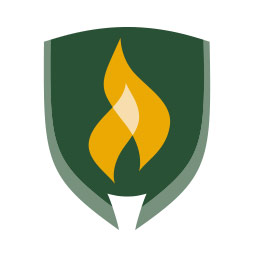
Human resources used to be all about paperwork and transactions, but today, a career in HR offers purpose, flexibility and a chance to make a real impact on people’s work lives.
HR professionals help shape company culture, promote employee growth and support business goals. If you’re thinking about a career change to HR, this guide will help you see what it takes, what skills you already have, and how to make the transition with confidence.
Who should consider a career in HR?
HR is more than just an administrative job. The HR department handles a huge variety of tasks and functions, but the core of these is making a work environment better for the people who work there.
If you are interested in advocating for equity, building a positive workplace and making a difference across the organization, HR could be a great career path.
HR work is both strategic and people-focused. It's a great field for people who enjoy problem-solving, strategy and exercising their people skills.
You’ll find opportunities to work in talent acquisition, employee relations, learning and development and business operations. No matter your background, if you care about helping others and want to be part of organizational change, HR can offer a meaningful and rewarding career.
How human resources is evolving into a strategic business partner
Human resources used to be known as the personnel department, focusing mostly on hiring, firing and payroll. Today, HR is at the center of company culture, business strategy, and employee experience. HR professionals help create onboarding programs, solve conflicts, review hiring trends and support diversity and equity across the organization.
If you want a career that blends people skills with strategic impact, HR is now a business partner to every department—not just an administrative team.
Assess your transferable skills for HR
Many career changers already have skills that work well in HR roles. Think about your current and past jobs—skills like communication, conflict resolution, project management and data analysis are all in demand.
Communication skills
A background in teaching, customer service, or management builds strong communication skills. These are helpful in HR for explaining policies, leading meetings, and adapting messages for different groups.
For example, Ariana was a high school English teacher who became an HR professional at a university. She uses her ability to explain complex ideas and adjust her communication style every day.
Conflict resolution skills
If you’ve managed teams or worked in a busy environment, you’ve probably helped solve problems and settle disagreements. While all problem solving skills are useful in human resources, conflict resolution, in particular, can be a big part of the role.
For example, Maurice once managed a retail store, dealing with high turnover and stressful situations. Now, his HR tasks include specializing in employee relations and using those same conflict management skills to help create a positive workplace.
Program and project management skills
Project management from fields like event planning or office administration transfers easily to HR.
For example, Ziva worked in event planning before moving into HR, where she now organizes training programs and diversity, equity and inclusion initiatives, handling budgets, logistics and deadlines just like before.
Data analytics skills
Experience with data is valuable in HR, especially in roles focused on people analytics or hiring trends.
For example, Michael, who was once a data analyst, now uses his Excel® and data visualization skills in his HR responsibilities to help HR leaders make evidence-based decisions.
Exploring HR roles and finding your focus
Human resources covers many different career paths and specialties. Whether you like variety or want to focus on a specific area, there is likely an HR job that matches your background and interests. The HR world is only expanding.
HR Generalist roles
HR generalists do a bit of everything—staffing, onboarding, benefits, employee experience and daily operations. This is a great path for people who enjoy variety and want to learn about all aspects of human resources.
Rebecca and Marnie are both HR generalists at a real estate company. Their days include writing job descriptions, handling interviews, updating handbooks and helping managers solve conflicts. They keep things running smoothly across the organization.
HR Specialist roles
Specialists focus on one area, like compensation and benefits, Human Resources Information System (HRIS), or people analytics.
Paula, for example, is a compensation and benefits specialist who designs salary structures and employee benefit plans. Trey works as an HRIS specialist, managing HR data systems and supporting managers with evidence and insights from workforce data.
HR Manager roles
Human resources departments can be huge, and they often come with their own management and leadership structures. With experience, you might decide to work your way up to some of these positions and help shape a company's human resources decisions.
HR Business partner and equity roles
HR business partners (HRBPs) work closely with company leaders to make sure HR strategies support business goals.
Many HRBPs also focus on diversity, equity and inclusion. Maya, for example, moved from sales into HR and now leads equity initiatives to improve fairness in hiring. She revises job descriptions, builds diverse talent pipelines and trains managers on fair interviewing practices.
How to successfully transition into a human resources career
No matter your background, making a career change can be daunting--but if you have any work experience at all, you already have some of the foundational things you need to build a career in human resources. Afterall, this is the field that's all about understanding work and employees.
Where are you coming from?
Transitioning to HR with an existing degree
Many HR professionals didn’t start out in HR. If you have a degree in business, education or another field, you have a strong foundation.
To make the transition, build HR-specific knowledge with online courses, HR certification (like SHRM® or HRCI®), and by joining professional associations. Short-term courses and workshops can give you the specialized knowledge needed for a generalist or specialist HR role.
Use the core areas of HR—maintenance, motivation, training and development, and recruiting—to guide your learning. Topics like employment law, performance management, HRIS, and analytics are especially important.
Pursuing a degree to launch your HR career
If you don’t have a degree yet, earning one in HR is a good step.
Look for programs that teach both theory and practice—employment law, talent acquisition, compensation and benefits, and performance management should all be covered. Make sure your program aligns with professional standards from groups like SHRM or HRCI.
Hands-on learning is important, too. HR degree programs should include projects or real-world scenarios so you can practice what you learn. It's one thing to read about new HR initiatives in class, and another thing entirely to try to launch an initiative yourself.
Steps for a successful transition into human resources
A successful transition to a career in HR takes planning and determination. Here are practical steps to help you make the switch.
- Identify your transferable skills: List your communication, project management, and data analysis skills—these are valuable in HR.
- Build HR knowledge: Take online courses, earn certificates, or enroll in a degree program to learn HR basics and best practices.1
- Join professional associations and network: Groups like SHRM and local HR chapters are great for networking and learning about job opportunities. Ask someone for their professional advice related to roles you're interested in.
- Tailor your resume for HR roles: Highlight your relevant skills and experience, even if they were gained in another industry.
- Get experience through internships or volunteering: If possible, volunteer for HR projects at your current company or seek out internships to gain real-world experience.
Your path to a fulfilling career in HR
Making a career transition to HR is a great way to help people while taking on new challenges. HR offers impact, purpose and real room to grow.
By building your knowledge, using your existing skills and connecting with the leaders in the HR community, you'll have a chance to transition confidently into a career that makes a difference.
Changing careers takes bravery and all the skills you've built through your prior work experience. But if your career journey has felt stale or frustrating lately, switching into HR might be the breath of fresh air you've been looking for.
To go a little deeper into the four main functions of HR (which can help you choose your starting point) check out What Can You Do With a Human Resources Degree?
1Rasmussen University does not offer any Human Resources Certificate programs
2Excel® is a registered trademark of Microsoft Corporation
3HRCI® is a registered trademark of Human Resource Certification Institute, Inc.
4SHRM® is a registered trademark of Society for Human Resource Management




